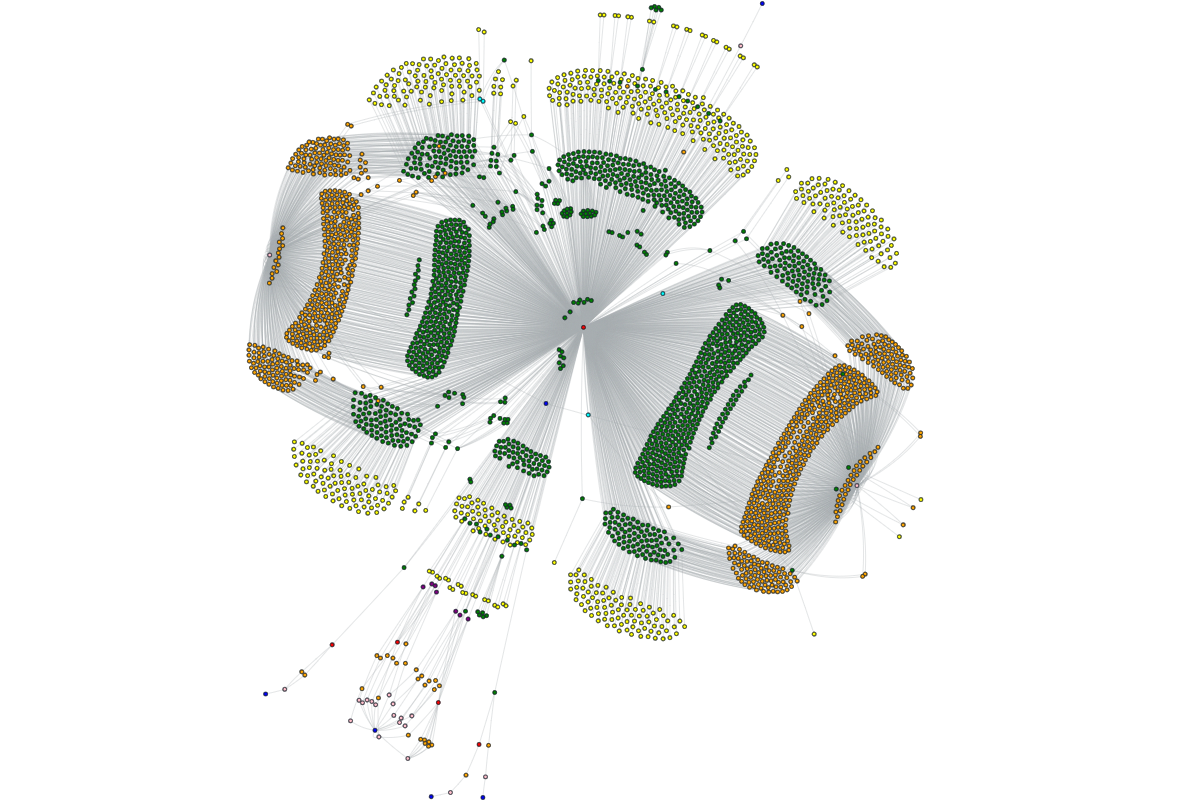The OWASP Amass Project performs network mapping of attack surfaces and external asset discovery using open source information gathering and active reconnaissance techniques.
Information Gathering Techniques Used:
| Technique | Data Sources |
|---|---|
| DNS | Brute forcing, Reverse DNS sweeping, FQDN alterations/permutations, FQDN Similarity-based Guessing, Zone transfers |
| Scraping | Ask, Baidu, Bing, DNSDumpster, DNSTable, Dogpile, Exalead, HackerOne, IPv4Info, Netcraft, RapidDNS, Riddler, SiteDossier, ViewDNS, Yahoo |
| Certificates | Active pulls (optional), Censys, CertSpotter, Crtsh, Entrust, GoogleCT |
| APIs | AlienVault, BinaryEdge, BufferOver, CIRCL, CommonCrawl, DNSDB, GitHub, HackerTarget, IPToASN, Mnemonic, NetworksDB, PassiveTotal, Pastebin, RADb, Robtex, SecurityTrails, ShadowServer, Shodan, Spyse (CertDB & FindSubdomains), Sublist3rAPI, TeamCymru, ThreatCrowd, Twitter, Umbrella, URLScan, VirusTotal, WhoisXML |
| Web Archives | ArchiveIt, ArchiveToday, Arquivo, LoCArchive, OpenUKArchive, UKGovArchive, Wayback |
You can find some additional installation variations in the Installation Guide.
- Simply unzip the package
- Put the precompiled binary into your path
- Start using OWASP Amass!
brew tap caffix/amass
brew install amasssudo snap install amass- Install Docker
- Pull the Docker image by running
docker pull caffix/amass - Run
docker run -v OUTPUT_DIR_PATH:/.config/amass/ caffix/amass --version
The volume argument allows the Amass graph database to persist between executions and output files to be accessed on the host system. The first field (left of the colon) of the volume option is the amass output directory that is external to Docker, while the second field is the path, internal to Docker, where amass will write the output files.
The wordlists maintained in the Amass git repository are available in /examples/wordlists/ within the docker container. For example, to use all.txt:
docker run -v OUTPUT_DIR_PATH:/.config/amass/ caffix/amass enum -brute -w /wordlists/all.txt -d example.com- Install Go and setup your Go workspace
- Add the Go Module environment variable by running
export GO111MODULE=on - Download OWASP Amass by running
go get -v github.com/OWASP/Amass/v3/... - At this point, the binary should be in
$GOPATH/bin
Use the Installation Guide to get started.
Go to the User's Guide for additional information.
See the Tutorial for example usage.
If you need help with installation and/or usage of the tool, please join our Discord server where community members can best try to help you.
🛑 Please avoid opening GitHub issues for support requests or questions!
We are always happy to get new contributors on board! Please check CONTRIBUTING.md to learn how to contribute to our codebase, and join our Discord Server to discuss current project goals.
The OWASP Amass core project team are:
- Jeff Foley aka
caffix(Project Leader) - Anthony Rhodes aka
fork-while-fork
For a list of all contributors to the OWASP Amass Project please visit our HALL_OF_FAME.md.
Did you write a blog post, magazine article or do a podcast about or mentioning OWASP Amass? Or maybe you held or joined a conference talk or meetup session, a hacking workshop or public training where this project was mentioned?
Add it to our ever-growing list of REFERENCES.md by forking and opening a Pull Request!
- SecurityTrails | OWASP Amass: A Solid Information Gathering Tool
- TrustedSec | Upgrade Your Workflow, Part 1: Building OSINT Checklists
- SANS ISC | Offensive Tools Are For Blue Teams Too
- Daniel Miessler | amass — Automated Attack Surface Mapping
- Dionach | How to Use OWASP Amass: An Extensive Tutorial
- Jason Haddix | LevelUp 0x02 - The Bug Hunters Methodology v3(ish)
- FireEye | Commando VM 2.0: Customization, Containers, and Kali, Oh My!
- Hacker Toolbelt | OWASP Amass OSINT Reconnaissance
- ToolWar | Extreme Subdomain Enumeration/Scanning on Windows : OWASP Amass
- Ghost Lulz | YouTube - Bug Bounty Tips: Amass Recon Tool
- HackbotOne | 10 Recon Tools For Bug Bounty
- Capt. Meelo | Asset Enumeration: Expanding a Target's Attack Surface
- Noobhax | My Recon Process — DNS Enumeration
This program is free software: you can redistribute it and/or modify it under the terms of the Apache license. OWASP Amass and any contributions are Copyright © by Jeff Foley 2017-2020.
 OWASP Amass
OWASP Amass
















